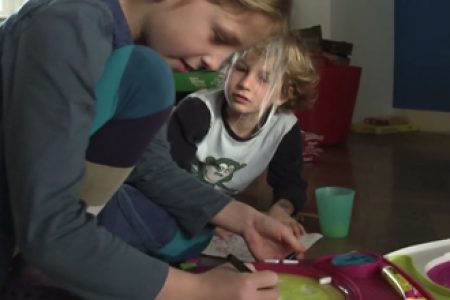‘Tis the season to be generous
December: a month characterized by commercial holidays such as ‘Sinterklaas’ and Christmas, but also traditionally a period for giving to those in need. Why do some people choose to spend money on someone else instead of buying something for themselves?
The first Tuesday of December 2019 marked the first Dutch participation in GivingTuesday, a global initiative to do good that originated in the United States in 2012. With this initiative, people are encouraged to give their time, money, goods, talents, or kindness to help others. The initiative arose in reaction to popular days characterized by mass consumption, such as Black Friday and Cyber Monday. Although it’s easy to grasp why people love Black Friday and the possibilities to buy gadgets, clothes, and everything else at discounted prices, it might be more interesting to understand why people would give away their time or money for the benefit of someone else.
Warm glow of giving
Donating money or goods, helping someone else, or sharing resources are examples of prosocial behavior. This umbrella term is used to describe a diverse range of behaviors that are aimed to benefit someone else. At first it might seem strange that people would give up something valuable (such as time or money) without directly receiving anything in return, but these acts of prosocial behavior actually make people feel pretty good about themselves. The positive feeling experienced shortly after donating money or goods has been described as “the warm glow of giving”. In the long term, people who engage more in prosocial behavior also report being happier. In fact, spending money on someone else may lead to higher levels of happiness than spending money on yourself!
Social benefits of prosociality
Apart from the personal benefits of prosocial behavior there are also interpersonal benefits that should not be overlooked. Prosocial behavior is seen as a key aspect of positive social relationships: if we show a willingness to help someone else, we may expect to receive help in return when we are in need of it. Additionally, people who show more prosocial behavior are liked better by those around them. This in turn also contributes to happiness, as individuals who have more friends report feeling happier than those who are lonely.
Why are some children more prosocial than others?
Since prosocial behavior has so many positive outcomes for both ourselves and others, it is important for children to learn this skill from an early age. After all, if they acquire this ability at an early age, they may benefit from it for the rest of their lives. Although there is a general consensus that prosocial behavior should indeed be encouraged, years of research have shown that there are large differences in children’s levels of prosocial behavior. One way to better understand why children differ in their level of prosocial behavior is by looking into the role of genes (the composition of DNA) and environment (for example parenting or friends). Researchers from Israel have shown that differences in sharing behavior are mostly driven by personal factors and experiences. This means that children who show more sharing behavior may have had more experience of sharing their toys, or that they have found friends who encourage sharing behavior.
Increasing prosocial behavior
The finding that prosocial behavior is influenced by personal experience is actually good news! This shows that parents, teachers, and other children can play an important role in increasing prosocial behavior: by explaining that it is the right thing to do, we may encourage children to be more prosocial towards others. Global initiatives such as GivingTuesday also include activities for children, to show them what you can do for another person. All in all, initiatives such as GivingTuesday provide a hopeful perspective for the future: by cultivating prosocial behavior in everyone we may work towards a happier and more positive society, not just in December but throughout the year.





